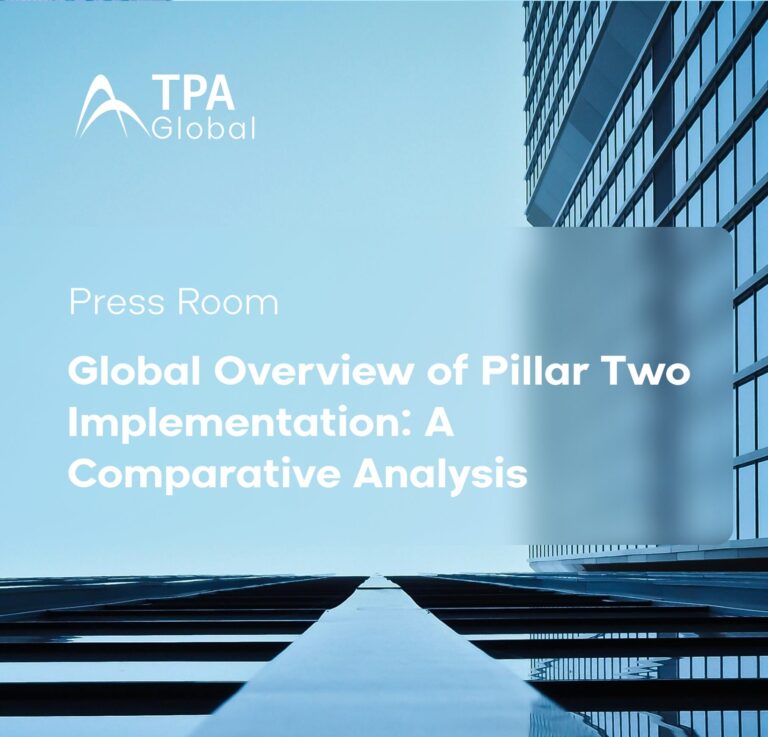On the 20th of December, Luxembourg solidified its adoption of the bill of law, ushering in the European Union’s directive on global minimum taxation rules, also known as “Pillar Two” or “GloBE rules”. Its application is scheduled for tax years commencing on or after 31 December 2023, aligning seamlessly with the directive’s anticipated timeline. The law’s evolution is anticipated to continue throughout 2024 in order to incorporate additional OECD guidance, expanding beyond mere rule interpretation.
Background:
At the heart of the OECD’s Pillar Two initiative lies the objective to guarantee that Multinational Enterprises (MNE) groups surpassing the EUR 750 million consolidated revenue threshold are consistently subject to a minimum corporate taxation rate of 15%. Substantial progress marks the project’s trajectory over the past two years:
- On 20 December 2021, the OECD released model rules for the income inclusion rule (IIR) and undertaxed profits rule (UTPR), collectively known as the GloBE Rules.
- By 15 December 2022, EU member states endorsed the EU directive, outlining a harmonized implementation of the Pillar Two model rules within the EU, extending the scope to include large-scale domestic groups.
- Key developments continued through additional releases by the OECD, such as the “Guidance on Safe Harbours and Penalty Relief” and subsequent administrative guidance.
Key Takeaways:
The finalized law closely resembles the draft bill initially presented in August 2023 and amended in November 2023. The income inclusion rule and the qualified domestic minimum top-up tax are set to take effect for fiscal years starting on or after 31 December 2023. However, the undertaxed profits rule will only come into play for fiscal years starting on or after 31 December 2024.
The Luxembourg legislator has stated their intention to embrace most OECD guidance released until mid-2023. Further, specific clarifications for the fund industry and the integration of December OECD guidance may pave the way for future amendments in 2024.
Notably, the current law neglects the implementation of the subject-to-tax rule through the ratification of a multilateral convention released by the OECD. Under the qualified domestic minimum top-up tax law, groups are required to pay additional tax on profits generated by low-taxed Luxembourg constituent entities within Luxembourg, rather than the jurisdiction of the ultimate parent entity.
In conclusion, Luxembourg’s timely embrace of the Pillar Two directive accents a proactive stance toward tax reforms, prompting entities under its purview to gear up for compliance obligations and potential amendments. This dynamic shift in tax legislation demands vigilant adaptation from tax professionals and investors, necessitating a comprehensive understanding of these developments to ensure strategic planning and compliance in the years ahead.
To keep updated on news, visit our Global News Page.
Don’t miss our most recent updates and articles; follow us on LinkedIn.



